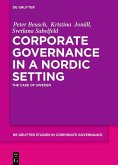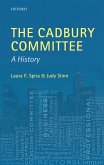The Resilience of New Public Management examines the role and significance of New Public Management (NPM) in contemporary society, and explores its emergence and resilience. Eminent scholars have said that NPM only existed from 1980-2000, and that we now live in a post-NPM world. This book tells a very different story. Evidence is presented in this book of 40 years of continuous NPM in public services, including government agencies, universities, and health care. NPM has diffused across sectors and globally since the 1980s, and in the process mutated to become modernization. It also coexists with alternative models of managing public services, including models such as digital era governance and network governance which were considered replacements for NPM. The capacity of NPM to mutate has caught many of its critics by surprise. This capacity for NPM to reinvent itself includes the adoption of Lean Management, the Toyota Production System. Early NPM adopter countries engaged with the use of Lean Management techniques, but late NPM adopters did not. The most recent alternative to NPM is Trust-based management, which has made significant advances in Scandinavian countries. However, Trust-based management is closely linked to proto-NPM and NPM practices and it has itself mutated to present itself as a friendlier and more supportive version of NPM, which at the very least deserves close scrutiny. The above trends are indicative of the resilience of NPM, and its intuitive appeal for policymakers. Its advocates argue that NPM has the capacity to deliver policy outcomes, but this book shows that such claims and aspirations are not always matched by the evidence of NPM in action.
Dieser Download kann aus rechtlichen Gründen nur mit Rechnungsadresse in A, B, BG, CY, CZ, D, DK, EW, E, FIN, F, GR, HR, H, IRL, I, LT, L, LR, M, NL, PL, P, R, S, SLO, SK ausgeliefert werden.









